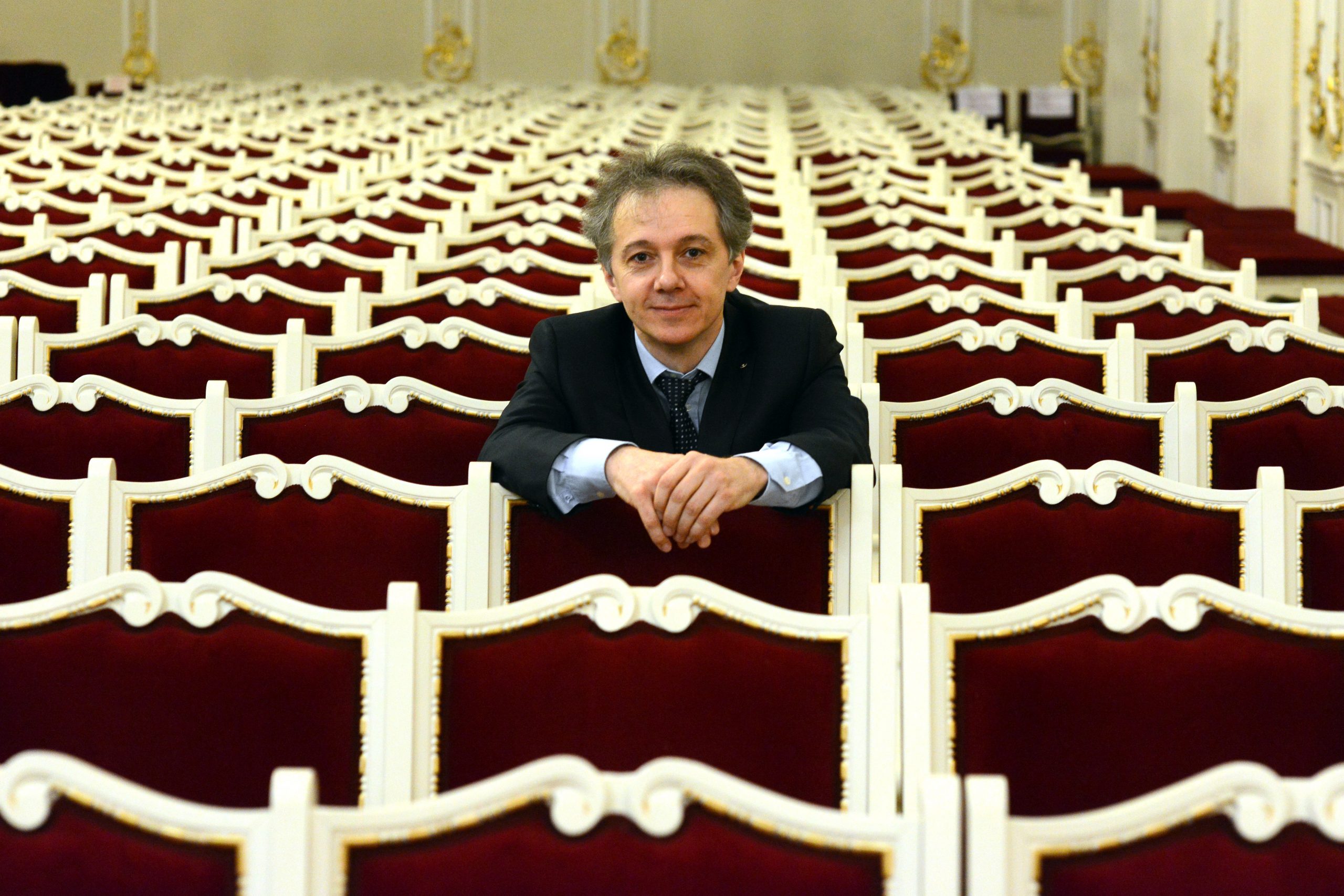
Alexander Polishchuk Masterclass
2-8 August 2024 Milan
Alexander Polishchuk
Born in Kiev, Maestro
Polishchuk started his education in St. Petersburg under the famous Prof. Ilya Musin in 1986. He
graduated with a diploma in 1991 and after a couple of years being the
Assistant to Profesor Musin he completed his PhD and became a Professor
himself. He has been teaching in the Saint Petersburg Conservatory from 1993
until now. He used to teach at the Royal Academy College of Music in Stockholm
and has given masterclasses at Universities in Finland, Scotland, Singapore,
Portugal, China, Sweden, Austria, Russia and the USA. Among his students are
Tugan Sokhiev, Darrell Ang, Ayyub Guliev, Kah Chun Wong, Eyvind Jensen, Mikhail
Tatarnikov and many others.
More on the Maestro’s website: alexander-polishchuk.com
The language of the Alexander Polishchuk
Masterclass is English.
There is NO age limit
The place of Masterclass is:
Palazzo delle Stelline - Scuola
Internationale Musicale di Milano
Corso Magenta 63
20123 Milan
The repertoire of the Masterclass:
Beethoven - Egmont Overture, Symphony No. 2
(all mov.)
Brahms - Symphony No. 2 (1st, 2nd and 3rd
mov.)
Tchaikovsky - Symphony No. 5 (1st and 2nd
mov.)
Bartok - Concerto for orchestra (1st and
4th mov.)
Every participant is asked to prepare up to
three movements (it
may be just one) from the
repertoire list because the main focus will be on conducting technique and
working in detail on that.
We offer a seven-day intensive programme on the basic orchestra repertoire. We will work at all times with two pianos and every participant will get six 40 min. lessons (240 min. in total) with Prof.Polishchuk. Additionally there will be two theoretical/practical sessions focused on conducting technique with unique Musin exercises based on excerpts from Beethoven piano sonatas provided by the Maestro on the third and fourth day of the Masterclass.
There will be 8 conductors admitted into
the active participants’ group. The organizer will also allow a small group of
passive participants.
To take part in the application process a
conductor needs to send a signed application form, a detailed CV and video
recording (not necessary), as a link, to the organizer’s e-mail address: monikastefaniakmanagement@gmail.com.
The process is open until the 30 June.
There is NO application fee. Early applications will
be prioritized!
The masterclass fee is:
For active participants: €1100
For passive participants: €300 or €500 - if taking part in the
theoretical/practical sessions
After receiving an application the Maestro
himself will choose the students he wishes to work with. The decision will be
made in the couple of days after the application deadline (30th June) and
accepting emails will be sent out.
The fee should
be paid on the e-mail account number provided, before 10th of July deadline. If payment isn’t received, students from
the reserve list will be invited instead.
If any unexpected circumstances occur and
the masterclass has to be cancelled, the participation fees will be refunded in
full.
The organiser is NOT providing
accommodation and meals and NOT covering travel expenses.
All active participants are obliged to
attend all sessions in their entirety and observe others’ lessons, even if not
attending a lesson themselves.
Application video guide for active
participants only:
The video excerpt should be no longer than
10 minutes. It should involve at least conducting two pianos, if not a bigger
ensemble, with the view of the conductor en face or side-on for at least 5
minutes, with one take of camera. If attaching a video is not possible, the
Maestro will choose from the CV of the candidate.
WHY DO WE WORK WITH TWO PIANOS?
The conducting profession exists to help every group of professional musicians play more easily and orderly in an ensemble. From the beginning the conductor’s role was mainly to help the ensemble play together in the same tempo and rhythm.
Over the past 150 years the
level of orchestral performance has risen unimaginably because of the musical
education of individuals, which made orchestras professional. But the level of
the conductor’s education didn’t evolve as much and we could even say it is
still the same.
Today the conductor is very
often interrupting the orchestra; destroying the commonwealth of the orchestra
ensemble and becoming a problem for the orchestra, which it then has to
overcome itself (having to play against the conductor’s gestures).
Alexander
Polishchuk is the author of the unique teaching method based on the Ilya Musin
Conducting School. Ilya Musin invented his method while facing the situation in
which he might have just ONE rehearsal before the concert. This forced him to
be perfectly prepared because he was unable to rely on orchestral repetitions.
Building up the necessary
skills during the orchestra repetitions, with many stops and repetitions
occurring due to the shortcomings of the conductor is UNACCEPTABLE!!! The
conductor should resolve all the problems –technical and of interpretation –
before the rehearsal with the orchestra.
The lessons with two pianos in
a conducting class gives the opportunity for multiple repetitions of the phrase
or movement, if needed. It seems to be a fundamental phase for helping to
acquire and consolidate the knowledge of the skills of a professional
conductor.
Ensuring joint performance of
the two pianists already give us an image of our ability to organize (2,3 and
more musicians) in an appropriate rhythmical order the orchestral ensemble
performance.
Imagination, emotion, and
expressiveness of conducting gestures are an important and relevant component
of learning seems to be the other side of the coin, but in fact it is also
possible to learn these in a class with two pianos.